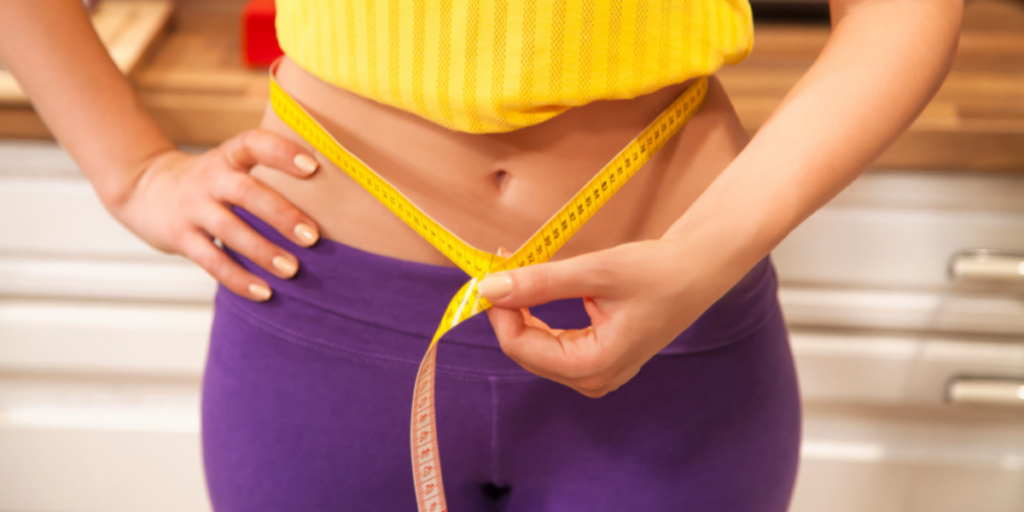No products in the cart.
Muscle Gain vs Fat Loss: How to Reach Your Body Composition Goals

The desire of muscle gain vs fat loss are common goals that are often misguided by the public. These body composition changes are simultaneously achieved through the work put in at the gym and in the kitchen.
There are common misconceptions about how to do this, such as the idea of “bulking” by consuming any food insight to gain muscle or by eliminating entire food groups to lose fat. However, these techniques may actually lead to fat gain and muscle loss. Here is the inside scoop on how to properly reach your body compositional goals.
Introduction to Muscle Gain VS Fat Loss
First, let’s break down the basic concept of how to maintain, gain, and lose weight. Body weight will change based on energy balance, or the relationship between calories in (food) versus calories out (activity). An isocaloric balance (when you eat the same amount as you expand) results in weight maintenance, a negative caloric balance (when you eat less than you expend) lead to weight loss, and a positive caloric balance (when you eat more than you expend) leads to weight gain.
Consider the fact that 1 pound of body weight is equivalent to 3,500 calories. Therefore, if you add 500 calories per day for 1 week, this will result in 3,500 calories excess and an accompanied 1 pound per week gain (visa-verse for weight loss). Calories can be increased or decreased to experience a faster or slower change in weight (ie: 250 calories = ½ lb/wk, 750 calories = 1 ½ lb/wk).
Muscle Gain
If your goal is to gain muscle, you need to create a positive caloric balance by consuming calories in excess of your needs. In addition, you must perform resistance training at a higher volume or intensity (if you just eat more, it won’t magically turn into muscle!). But, what kind of calories should you eat? To gain muscle, you should increase your overall caloric intake with complex carbohydrates, lean proteins, and unsaturated fats, in addition to lifting more weights.
The best meal planning tips for muscle gain:
Eat nutrient-dense foods: Nuts, avocado, dried fruit
Eat a pre-workout snack with simple carbohydrates: Apples, granola bars, dried fruit
Eat a post-workout snack with simple carbohydrates and lean protein: Chocolate milk, PB&J, yogurt
Increase serving of protein and carbohydrates at each meal
Eat 5-6 meals per day
Eat every 2-3 hours
Muscle Gain Sample Meal Plan- 3,500-3,800 calories1
Breakfast (700-800 calories): 2 slices whole-wheat bread, 2 slices reduced-fat cheese, 1 egg, and 2-3 oz turkey bacon, 1 serving of fruit, 8 oz reduced-fat milk
Snack (350 calories): ½ whole-wheat bagel with 2 Tbsp peanut butter and 2 Tbsp fruit jam
Lunch (700-800 calories): 1 whole-wheat pita with 6 oz chicken breast, 1⁄2 cup grated reduced-fat cheese, lettuce, tomato, 15 baked chips, 1 serving of fruit, 16 oz low-fat chocolate milk or 100% juice
Post-Workout Snack (250-350 calories): 1 energy/protein bar (200-250 calories)
Dinner (700-800 calories): 6-8 oz meat/fish/poultry, 2 cups green vegetables, 2 cups carbohydrate (pasta, rice, potato, etc.), side salad with dressing, 16 oz reduced-fat milk
PM Snack: Shake with 2-3 scoops high-calorie protein powder in 16 oz reduced-fat milk, 1 banana
Fat Loss
If your goal is to lose fat, you need to create a negative calorie balance by consuming fewer calories than you expend. But, do you need to feel constantly hungry or tired from excessive exercise? Definitely not! To lose fat, you can achieve this goal by reducing your intake, increasing your expenditure, or a combination of the two.
The best meal planning tips for fat loss:
Eat nutrient-rich foods: Berries, dark green veggies
Avoid high-calorie food items: Cakes, candy, sugar-sweetened beverages
Consume low-fat dairy sources
Eat 4-5 meals per day
Eat every 3-4 hours
Eat in moderation: It’s okay to have some candy, but not the whole bag!
Fat Loss Sample Meal Plan- 1,800-2,000 calories2
Breakfast (450-500 calories): 2 whole-wheat waffles, 2 Tbsp PB, cinnamon, 1 egg or 1 light yogurt, 1⁄2 cup berries
Snack (200 calories): 3/4 cup low-fat cottage cheese or yogurt
Lunch (450-500 calories): Salad with 5 oz grilled chicken breast, 1 cup chopped vegetables, 3 Tbsp nuts, 1⁄2 cup berries, dressing on side, 1 large sweet potato
Post-Workout Snack (200 calories): 15 whole-wheat crackers, 1 serving 2% string cheese
Dinner (450-500 calories): Healthy Quesadillas: 1 whole wheat tortilla, 1⁄2 cup 2% grated cheese, 5 oz chopped chicken breast, 1⁄2 cup chopped peppers and mushrooms, 2 Tbsp light sour cream, salsa, ¼ avocado, side salad w/ dressing on side
Snack (100-150 calories): 1⁄2 apple chopped and covered in cinnamon; warm in microwave 2 minutes, Cover in light vanilla yogurt and 1 Tbsp whole grain cereal
Take Away Message
Whether your goal is to gain muscle or lose fat, you now have the tools you need to reach your body composition goals! Start by establishing your calorie surplus or deficit per day, follow the tips, and utilize the meal plan to reach your body composition goals. No matter which goal you are working towards, choose complex carbohydrates, lean protein sources, and unsaturated fats to fill your plates. And don’t forget, to enjoy all things in moderation in your journey!
Keep us updated on your journey in the comments below! Good luck in reaching your goals!
Resources
1 Academy of Nutrition and Dietetics. “Weight Gain For Athletes.” Nutrition Care Manual. 2017. Accessed 22 Feb 2017. < https://www.nutritioncaremanual.org/topic.cfm?ncm_category_id=26&lv1=255353&ncm_toc_id=255353&ncm_heading=&&showtbar=1>
2 Academy of Nutrition and Dietetics. “Weight Loss For Athletes.” Nutrition Care Manual. 2017. Accessed 22 Feb 2017. < https://www.nutritioncaremanual.org/topic.cfm?ncm_category_id=26&lv1=255354&ncm_toc_id=255354&ncm_heading=&>
